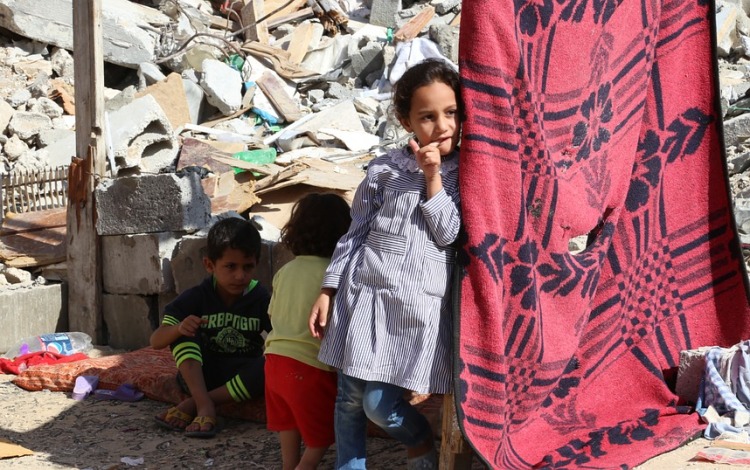Top UN official urges Israeli, Palestinian leaders to ‘put on the brakes’

Unless decisive steps are swiftly taken to rein in Israeli-Palestinian violence, there is a “significant risk” that the situation could deteriorate, the top UN Middle East official told the Security Council on Tuesday.
“The choice is clear,” said Tor Wennesland, the UN Special Coordinator for the Middle East Peace Process (UNSCO). “Either continue along the downward spiral of violence and provocations leading to a political vacuum or turn towards constructive dialogue linked to concrete actions that can create hope and a political horizon.”
‘Alarming spike’
Urging Israeli and Palestinian leaders to “put on the brakes and rethink the options”, he warned of an “alarming spike in violence” across the northern and central occupied West Bank that has led to numerous Palestinian and Israeli casualties over the past 13 days, since the submission of his latest monthly report, covering the period between mid-May and mid-June.
Providing a grim snapshot of current hotspots, he said military operations – including airstrikes in the West Bank – clashes, attacks, and extremely high levels of settler-related violence, have continued and intensified dramatically.
In addition, he reported the use of more sophisticated weapons by Palestinians, including an advanced improvised explosive device and rockets launched towards Israel.
‘Settler rampage’
From 20 to 25 June, Israeli settlers perpetrated 28 violent attacks against Palestinian villages, he said, adding that the “settler rampage” had caused one death and dozens of injuries.
Israel, as the occupying power, has an obligation to protect Palestinians and their property in the Occupied Territory and to ensure prompt, independent, impartial, and transparent investigations into all acts of violence, he said.
“The deepening occupation, settlement expansion, the high levels of violence against civilians, including acts of terror, and, critically, the absence of a political horizon are rapidly eroding hope among Palestinians and Israelis, and particularly among youth, that a resolution of the conflict is achievable,” he said.
‘Extremely dangerous’
“The speed and intensity of the security deterioration we are witnessing on the ground are extremely dangerous,” he said.
“The unfolding events seriously challenge broader stability and undermine the Palestinian Authority,” he added.
While the ceasefire following the Gaza escalation in May has held, there is a constant risk that events in the West Bank could spill over into the Gaza Strip, he said.
Aid consequences
Equally concerning are the Palestinian Authority’s fiscal and institutional challenges, exacerbated by funding shortages, including for UN agencies, that impact the delivery of crucial basic services. This may further aggravate the deterioration of the situation on the ground, he cautioned.
“Let there be no doubt, neither the Palestinian Authority nor the UN will be able to provide humanitarian assistance without donors urgently stepping up financial support,” he warned.
Regarding other significant developments, he said that the UN’s Palestine refugee agency, UNRWA, resumed after four months full service delivery in the West Bank, including at 42 health clinics and 90 schools serving more than 40,000 children. The disruption was due to a work dispute with the local staff union and a strike, he noted.
‘We must urgently act’
But, the ongoing security situation remains a grave challenge, he said.
“We must urgently act collectively to stop the violence,” he said. “At the same time, it is crucial to bring the parties back onto a path that addresses the political issues driving the current dynamics, so that a process to resolve the core issues can begin.”
Council renews DR Congo sanctions, Somalia mission
At the outset of the morning meeting, the Council unanimously adopted two resolutions, renewing for six months the African Union Transition Mission in Somalia (ATMIS) and extending by one year the current sanctions regime covering an arms embargo, travel ban, and asset freeze that require States to refrain from, among other things, providing weapons to non-governmental entities operating in the Democratic Republic of the Congo.
Visit UN News for more.
ALSO READ
Escalating Tensions: Israeli Forces and Palestinian Militant Clash
Escalation in the West Bank: Deadly Clashes between Israeli Forces and Islamic Jihad
Escalating Conflict: Gaza Faces Destruction Amidst Israeli Incursion
Tensions Escalate: Israeli Airstrikes Hit Central Syria
Israeli Strike on Ancient Palmyra: A Tragic Assault










